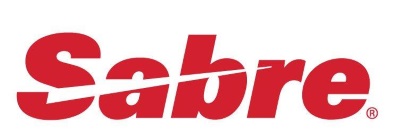
A recipe for business travel success: reduce friction, add tech, serve up satisfaction
By cameron in Uncategorized
This article is sponsored by Sabre.
Corporate travel programs should prioritize total trip convenience for travelers over cost savings for the business, says a new global study from Sabre and GBTA.
This is one of the key findings in a new report – Creating a Frictionless Travel Experience – released this week.
According to the report:
“For companies around the world, enhancing the travel experience for employees instead of cutting corners on costs promotes workplace satisfaction, organizational loyalty and operating efficiencies.”
The best way to enhance the travel experience is to make it frictionless. Satisfaction, loyalty and efficiency are key parts of an employee’s mindset when he or she takes to the road on behalf of their company. The evidence that travel can positively impact these three states of mind is clear from the study, providing the trip is frictionless from start to finish.
The experience matters
The connection between frictionless travel and a loyal and satisfied workforce applies around the world. The report not only provides a global overview, but also drills down into four regions – EMEA, North America, Asia-Pacific and Latin America. And while there are differences in some areas, the fact is that 80% of travelers believe their trip experience affects how well they do their job.
By region -79% of travelers in Asia-Pacific are generally satisfied with traveling for work at their current job. Sabre found that APAC travelers want automated information, itinerary-management apps, and mobile payment capabilities.
Similarly, 93% of Latin American travelers say they are satisfied with their business travel. Convenient, comfortable hotels are key to a frictionless experience for Latin American business travellers. For EMEA travellers, travel safety and efficiency are top priorities. “High-performing organizations realize that less traveler friction equates to more productive journeys,” the study says.
Pain relief
Having established that frictionless travel is a prerequisite for a loyal and productive workforce, the study identifies the pain points felt by travelers and suggests ways in which technology can alleviate the annoyances.
The pain points are relatively consistent across the regions and tend to fall into the “work-life balance” category. Business travelers expressed dissatisfaction with the amount of time spent traveling, a pain point which, other than ensuring direct flights or high-speed trains with convenient departure times are available, is hard to eliminate.
But tech-based solutions can be applied before, during and after the trip to make the experience as frictionless as possible. Travelers from Latin America said that improving communication can help eliminate many of the pain points – good news for corporations as it is a relatively low-cost service to implement. Travelers in EMEA and North America identified the filing of post-trip expenses as a headache and wanted to be able to do this via their smartphones; the APAC responses are around convenience and comfort, such as the ability to change a flight or hotel booking on the go via mobile, which was also identified as a high priority.
The proof is in the policy
Travel programs serve two masters – the corporation and the traveler. From the former’s perspective, negotiated rates and preferred supplier contracts can deliver significant and easily measurable cost savings. The benefits of a traveler-centric program that boosts employee well-being and job satisfaction are more abstract.
For travelers, the situation is unequivocal – 100% of the sample said travel is an important driver of job satisfaction and the majority said that a potential employer’s travel program and policy is important when deciding on a new job. This is most evident in Latin America where 67% agreed, whereas EMEA respondents were the least concerned with 50% of potential recruits factoring travel policy into their decision-making process.
From the findings above, it is clear that corporations with a frictionless travel policy have the edge over those that focus on cost savings when it comes to bringing in new staff. Having also established travel as a key driver of job satisfaction, an argument can also be made that travel can be a determining factor in staff retention.
Corporations most heavily impacted are those that focus primarily on cost-saving travel programs rather than traveler-centric experiences. According to external research, the cost of replacing senior employees can be more than 200% of their annual salary. Having a frictionless travel policy is not necessarily a guarantee that staff will stay – people change jobs for a variety of reasons – but it clearly helps if employees feel the corporation is doing everything it can to make the business travel experience as stress-free as possible.
The big picture
Creating a frictionless travel experience for travelers has been part of the corporate conversation for some time. Technology tools and solutions are available to address most of the pain points felt by travelers, while the investment required can be justified by the benefits of having a more productive, loyal and satisfied workforce.
The report concludes:
“By prioritizing the business traveler’s experience, companies can foster organizational loyalty, a dedicated team, and a positive work environment while offsetting the loss of productivity and revenue that can occur when the travel experience is poor.”
Click here to download the Sabre study: “Creating A Frictionless Travel Experience.”

This article by Sabre appears as part of the tnooz sponsored content initiative.
![]()

